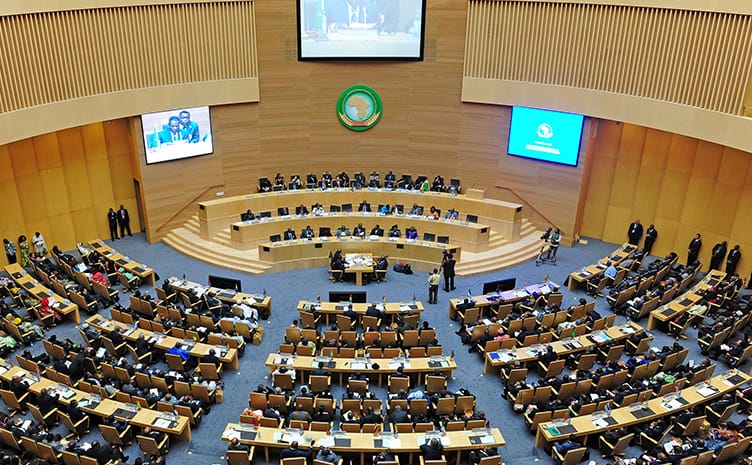The African Union Peace and Security Council is set to convene on Tuesday, June 4, to discuss how the continent can better coordinate ammunition management with global standards as part of wider efforts to control arms proliferation and bolster regional stability.
At its 1281st session, the Council will examine how the Global Framework for Through-life Conventional Ammunition Management (GFA) can be aligned with Africa’s existing regional instruments on arms and ammunition control.
Tanzania’s Ambassador to the African Union, Innocent Shiyo, who chairs the Council this month, is expected to open the meeting. AU Commissioner for Political Affairs, Peace and Security, Bankole Adeoye, will also deliver a briefing, alongside technical input from regional organisations and the United Nations.
The GFA, launched by the UN in 2022, promotes a life-cycle approach to ammunition management, covering everything from acquisition to disposal. It sets out 15 objectives and 85 voluntary measures aimed at preventing diversion, reducing risk, and promoting transparency across all categories of conventional ammunition.
Africa already has multiple regional agreements governing small arms and light weapons (SALW), such as the ECOWAS Convention, the Nairobi Protocol, and the Kinshasa Convention. But these tend to focus on SALW and their immediate ammunition rather than the full range of conventional munitions covered under the GFA.
A recent African Union Commission study found several gaps between the global framework and regional legal regimes. While Africa’s protocols are binding, the GFA is political and voluntary. Moreover, regional frameworks often lack capacity and technical resources, hampering implementation.
The Peace and Security Council is expected to explore how to bridge those gaps through training, technical support, and better alignment of regional legal texts with global standards like the International Ammunition Technical Guidelines (IATGs).
The session also reflects the AU’s broader strategic ambitions. Its “Silencing the Guns” initiative and Agenda 2063 both identify arms control as critical to achieving sustainable peace and development. But officials warn that fragmented legal regimes and porous borders continue to fuel illicit arms flows in regions like the Sahel, undermining these goals.
The Council may issue a communiqué urging stronger coordination among member states, regional bodies, and global partners, as well as calling for improved stockpile audits, border controls, and export risk assessments.
The PSC is also likely to encourage African participation in the upcoming UN-hosted meeting on the GFA, set for June 23–27 in New York, where global stakeholders will review implementation progress and share lessons learned.
For now, eyes will be on Addis Ababa as African diplomats and technical experts seek a united path toward safer ammunition management—and a more secure continent.



